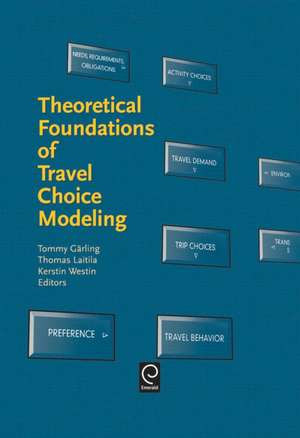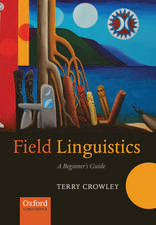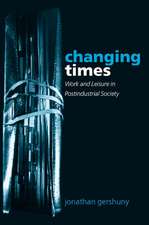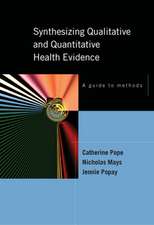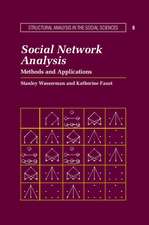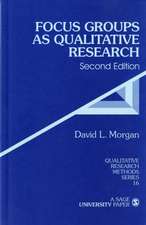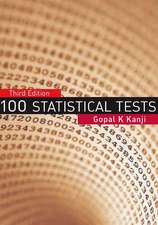Theoretical Foundations of Travel Choice Modeling
Autor Tommy Garling, Thomas Laitila, Kerstin Westinen Limba Engleză Hardback – 18 aug 1998
Divided into three parts, Microeconomic Theory, Behavioral Decision Theory and Statistical Theory, the book extends approaches to travel choice modeling beyond the consumer theory developed in economics by applying theories from the fields of geography, psychology and statistics and in doing so addresses two fundamental questions: what are the theoretical foundations of travel choice modeling and what should they be?
Containing twenty specially commissioned chapters, this book represents the latest and best thinking in this rapidly expanding field. Activity-based and dynamic approaches are fast emerging as the state-of-the-art in transport modeling and are replacing trip-based models. This book tackles the key theoretical foundations that underpin these new approaches by asking: are there developments in traditional microeconomic theory which make it useable? Is behavioral decision theory a more appropriate theoretical foundation? Which are the statistical data analytical issues in each case and how can they be solved?
Preț: 1409.51 lei
Preț vechi: 1830.54 lei
-23% Nou
Puncte Express: 2114
Preț estimativ în valută:
269.75€ • 280.58$ • 222.69£
269.75€ • 280.58$ • 222.69£
Carte tipărită la comandă
Livrare economică 14-28 aprilie
Preluare comenzi: 021 569.72.76
Specificații
ISBN-13: 9780080430621
ISBN-10: 0080430627
Pagini: 510
Dimensiuni: 184 x 247 x 35 mm
Greutate: 1.06 kg
Editura: Emerald Publishing
ISBN-10: 0080430627
Pagini: 510
Dimensiuni: 184 x 247 x 35 mm
Greutate: 1.06 kg
Editura: Emerald Publishing
Cuprins
Theoretical foundations of travel choice modeling: an introduction (T. Gärling et al.). Microeconomic Theory. Individual and collective decision making: application to travel choice (A. de Palma). Time and income in travel choice: towards a microeconomic activity-based theoretical framework (S.R. Jara-Díaz). Extending valuation to controlled value functions and non-uniform scaling with generalized unobserved variances (D.A. Hensher). The end of equilibrium (P. Goodwin). Microeconomic theory: a commentatory (S. Algers). Behavioral Decision Theory. The perspective from behavioural decision theory on modeling travel choice (O. Svenson). Travel choice in congestions: modeling and research needs (E. Stern). Bounded rationality in commuter decision dynamics: incorporating trip chaining in departure time and route switching decisions (H.S. Mahmassani, Rong-Chang Jou). Time in travel choice modeling: from relative obscurity to center stage (E.I. Pas). Two computational process models of activity-travel choice (Ryuichi Kitamura, Satoshi Fujii). Information representation for driver decision support systems (Mei-Po Kwan et al.). Can we ever obtain the data we would like to have? (K.W. Axhausen). Behavioral decision theory: problems and prospects (J. Polak). Statistical Theory. Measuring willingness-to-pay for transportation improvements (D. McFadden). A model of household choice of activity participation and mobility (T.F. Golob). Household travel surveys: new perspectives and old problems (P.R Stopher). Multiple imputation methodology for missing data, non-random response, and panel attritition (D. Brownstone). Forecasting demand for new travel alternatives (A. Daly, C. Rohr). Statistical theory: summary and future research possibilities (C. Bhat). Subject index. Name index.
Recenzii
Bertil Vihelmson
a somewhat diverse but thoughtful reminder of the problematic theoretical assumptions of present travel forecasting. It sets out to introduce a descriptive psychological framework that may provide more realistic assumptions for modelling efforts.
Geografiska Annaler
John Dinwoodie, University of Plymouth, UK
Heated musings over the strategists' classic tension between where we are now, and where we would like to be, have rarely failed to generate incisive and fruitful debate, and that is precisely what this volume offers. In a collection of over twenty commissioned offerings by contributors with glittering credentials, the theoretical foundations of travel choice modelling are not only well and truly shaken, tried and tested, but also tentatively relaid. Each one of these papers is worthy of serious and extended study, luring even casual or unenlightened readers into a deeper understanding of pertinent historical perspectives, whilst seductively proffering a change in the way ahead.... Travel choice modelling is by nature multi-disciplinary...for those readers willing to learn from colleagues in proximate disciplines there is a wealth of new ideas and experience presented here, along with pointers to challenges where they might themselves make contributions in this field. This volume should provide both useful reviews of past practice and seminal accounts of future practice for many years hence.
Journal of Transport Geography
Lidia P. Kostyniuk, University of Michigan Transportation Research Institute
...succeeds at examining the behavioural credibility of travel choice models ... does show that the field is heading in a positive direction.
Transportation Research Part A
Peter E. Tarlow
Theoretical Foundations of Travel Choice Modeling is an excellent book for those interested in quantitative transportation theory, and how it integrates theoretical perspectives from psychology, social-psychology, sociology, and statistics.
Annals of Tourism Vol 27, No 1
a somewhat diverse but thoughtful reminder of the problematic theoretical assumptions of present travel forecasting. It sets out to introduce a descriptive psychological framework that may provide more realistic assumptions for modelling efforts.
Geografiska Annaler
John Dinwoodie, University of Plymouth, UK
Heated musings over the strategists' classic tension between where we are now, and where we would like to be, have rarely failed to generate incisive and fruitful debate, and that is precisely what this volume offers. In a collection of over twenty commissioned offerings by contributors with glittering credentials, the theoretical foundations of travel choice modelling are not only well and truly shaken, tried and tested, but also tentatively relaid. Each one of these papers is worthy of serious and extended study, luring even casual or unenlightened readers into a deeper understanding of pertinent historical perspectives, whilst seductively proffering a change in the way ahead.... Travel choice modelling is by nature multi-disciplinary...for those readers willing to learn from colleagues in proximate disciplines there is a wealth of new ideas and experience presented here, along with pointers to challenges where they might themselves make contributions in this field. This volume should provide both useful reviews of past practice and seminal accounts of future practice for many years hence.
Journal of Transport Geography
Lidia P. Kostyniuk, University of Michigan Transportation Research Institute
...succeeds at examining the behavioural credibility of travel choice models ... does show that the field is heading in a positive direction.
Transportation Research Part A
Peter E. Tarlow
Theoretical Foundations of Travel Choice Modeling is an excellent book for those interested in quantitative transportation theory, and how it integrates theoretical perspectives from psychology, social-psychology, sociology, and statistics.
Annals of Tourism Vol 27, No 1
